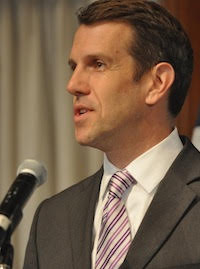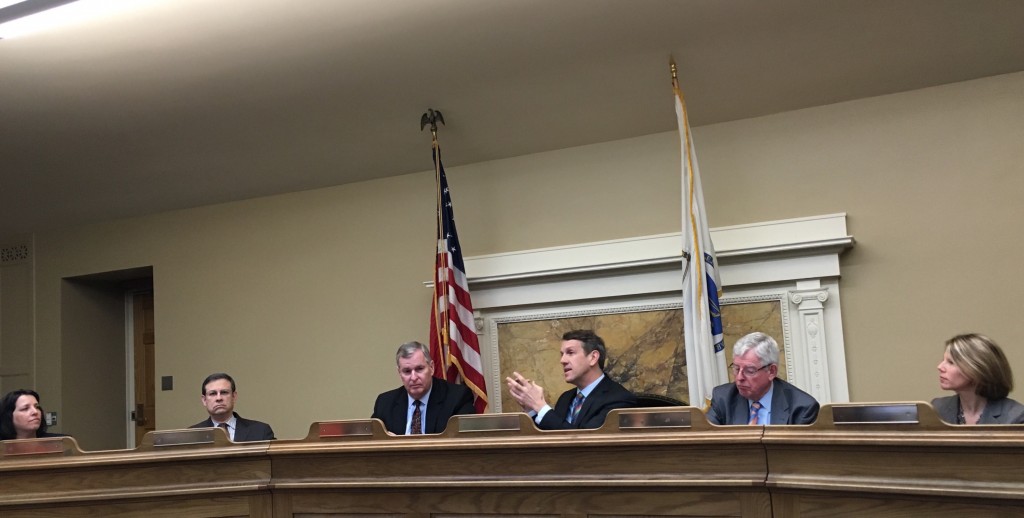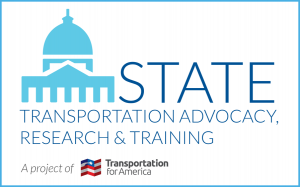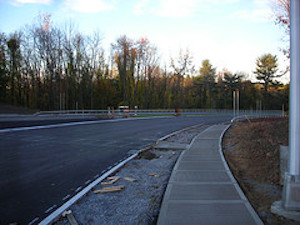
FOR IMMEDIATE RELEASE
September 21, 2016
T4America’s James Corless will depart in 2017 to lead Sacramento’s pioneering metropolitan planning agency
 WASHINGTON, DC — After more than eight years as the director of Transportation for America, the only national non-profit coalition dedicated to smart, homegrown, locally-driven transportation solutions, James Corless has been selected by the Sacramento Area Council of Governments (SACOG) to become the agency’s new chief executive officer beginning in the spring of 2017.
WASHINGTON, DC — After more than eight years as the director of Transportation for America, the only national non-profit coalition dedicated to smart, homegrown, locally-driven transportation solutions, James Corless has been selected by the Sacramento Area Council of Governments (SACOG) to become the agency’s new chief executive officer beginning in the spring of 2017.
James Corless will replace Mike McKeever as CEO, who is retiring at the end of this year after a long career helping SACOG become one of the most forward-looking metropolitan planning agencies in the country.
Upon his appointment, Corless made this statement:
I am honored to be given the opportunity to lead SACOG into its next chapter. From its work strengthening rural communities and preserving agricultural land to the progress promoting more walkable, transit-oriented, and compact development through the Sacramento Region Blueprint, on the ground success can be seen across the region. SACOG’s leadership and role as convener and collaborator is going to be critical in the years ahead in order to promote economic prosperity, innovation, and a high quality of life that will benefit each and every resident of the region.
James Corless has served as director of T4America since January 2009, steering the organization through numerous changes over the years and producing significant accomplishments. Since 2013, Corless has been the primary force behind building T4America’s strong national network of civic, elected, and business leaders who understand that smart, strategic investments in infrastructure are crucial for attracting economic development.
Under his leadership, T4America created an ongoing series of training academies aimed at helping local leaders of all stripes make their ambitious transportation plans a reality, helped launch the national Smart Cities Collaborative for municipalities looking to use technology to improve mobility options, and found ways to train and encourage dozens of regional planning agencies across the United States to implement data-driven decision-making to improve transparency and get more bang for the buck.
“While we will certainly miss James and the valuable leadership he has provided to this organization over the years, he built an incredibly strong foundation and catalyzed a movement of local leaders working hard to change the status quo; a movement that will long outlast his time at T4A,” said Geoff Anderson, president and CEO of Smart Growth America, of which T4America is a program. “He recruited passionate, talented people to come and work for us, and worked to show scores of state, metro and local agencies smarter ways to spend their transportation dollars. All of which makes it no surprise that an organization like SACOG with a terrific reputation of people-first planning would come looking for a leader like James.”
Corless will stay on as director of T4America through March 2017. We’ll be sharing additional information about his replacement over the coming months.
—
Transportation for America is an alliance of elected, business and civic leaders from communities across the country, united to ensure that states and the federal government step up to invest in smart, homegrown, locally-driven transportation solutions — because these are the investments that hold the key to our future economic prosperity.
For any California-based inquiries, please contact Monica Hernández at SACOG
916-599-4568 / MHernandez@sacog.org







